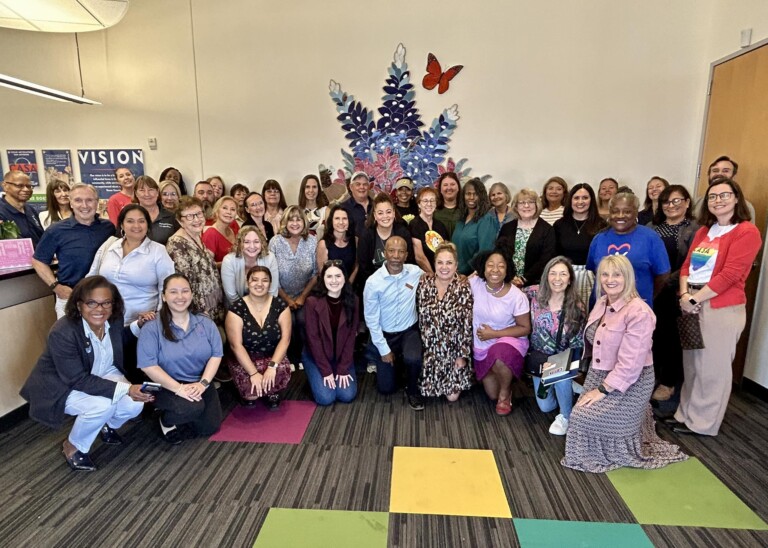Keeping Families Safely Together

Dear friends,
When a family is in crisis and the children enter the foster care system, oftentimes the separation from family members will add further trauma and distress. To support the reunification process, child welfare agencies have shifted to focusing on implementing trauma-informed, family-centered approaches that build on family strengths and actively engage parents, youth and kin.[1] For National Reunification Month, observed annually in June, we are taking the time to recognize and strengthen the ongoing efforts around the country that help families stay together, including the efforts happening right here in Texas. Texas CASA believes reunification with the family of origin should always be the top priority. If a child cannot safely remain with their parents, placement with kin or fictive kin will then be the next goal. Texas CASA takes an active approach towards promoting reunification by implementing these supports in our Collaborative Family Engagement (CFE) work, as well as in the pre-service training for volunteers and ongoing training opportunities for staff and volunteers.
CFE is a connection-informed approach to CASA advocacy and Child Protective Services (CPS) case practices focused on maintaining, building or strengthening children’s connection to their family, community, culture and identity. Given that traumatic experiences affect a child’s biological, psychological and social development, CFE takes a trauma-informed, family-centered approach to working with children and families. This approach includes:
- Recognizing that children heal from trauma through relationships, working to create a network of caring, safe and supportive people for the youth that is immediate and ongoing.
- Responding urgently to the needs of the child, whether that is removal from the home, lingering in out-of-home care or potentially aging out of foster care without relational or legal permanency.
- Using CFE activities/tools that build rapport, trust and connection through playful engagement.
- Promoting connections that provide healing, safety, healthy attachment, positive development, feelings of security and happiness, all of which help regulate emotions, impulses and recovery.
- Recognizing that services do not necessarily mean safety, and that children and parents can only feel safe and thrive when in positive relationships.
By starting with engagement of the family from the beginning of CFE work, we demonstrate through our actions that we want to know the family’s story from their point of view, not through a summary of CPS or CASA documents. Collaborative Family Engagement work is being practiced all across Texas in partnership with the local CASA programs, CPS and the Community-Based Care providers and this inspiring initiative continues to grow.
In addition to CFE work, reunification is discussed continually throughout the pre-service training for CASA volunteers. One of the ways we encourage reunification-focused advocacy is by proactively learning about parents’ strengths. In chapter two of the volunteer manual, we outline strength-based questions for the volunteer to ask the parents. The questions were created to help the parents feel more comfortable voicing concerns or needs and exploring solutions by 1) Focusing on the parents’ hopes and goals for their children, 2) Helping parents identify and build on their strengths in parenting and 3) Modeling nurturing behavior by acknowledging frustrations and recognizing the parents’ efforts.
Another topic covered in pre-service training is the minimum sufficient level of care or MSL, a basic set of safety criteria used to determine reunification ability by monitoring parents’ progress so the child can be returned home. Texas CASA believes the MSL is a critical polestar for CASA advocacy. We encourage you to check out this CASA on the Go podcast episode where Margaret Halpin, Learning and Development Manager for Pre-Service Training, and Leslie Cocke, Advocacy Development Specialist, discuss how advocates can ensure they are fully embracing the MSL in their decision-making and recommendations to the court.
According to the U.S. Department of Health and Human Services, Administration for Children and Families, 52% of children in foster care are safely reunited with their parent or primary caregiver. By continuing to promote reunification-focused advocacy and supporting reunification efforts, we can all play an active role in keeping families safely together. Together, we can create a brighter, safer future for Texas families.
Want to learn more? Check out a few great articles for you to read and share with your networks: June is National Reunification Month, Reunifying Families and Spotlight on Reunification.
Warmly,

[1] https://www.childwelfare.gov/topics/permanency/reunifying-families/?top=117


